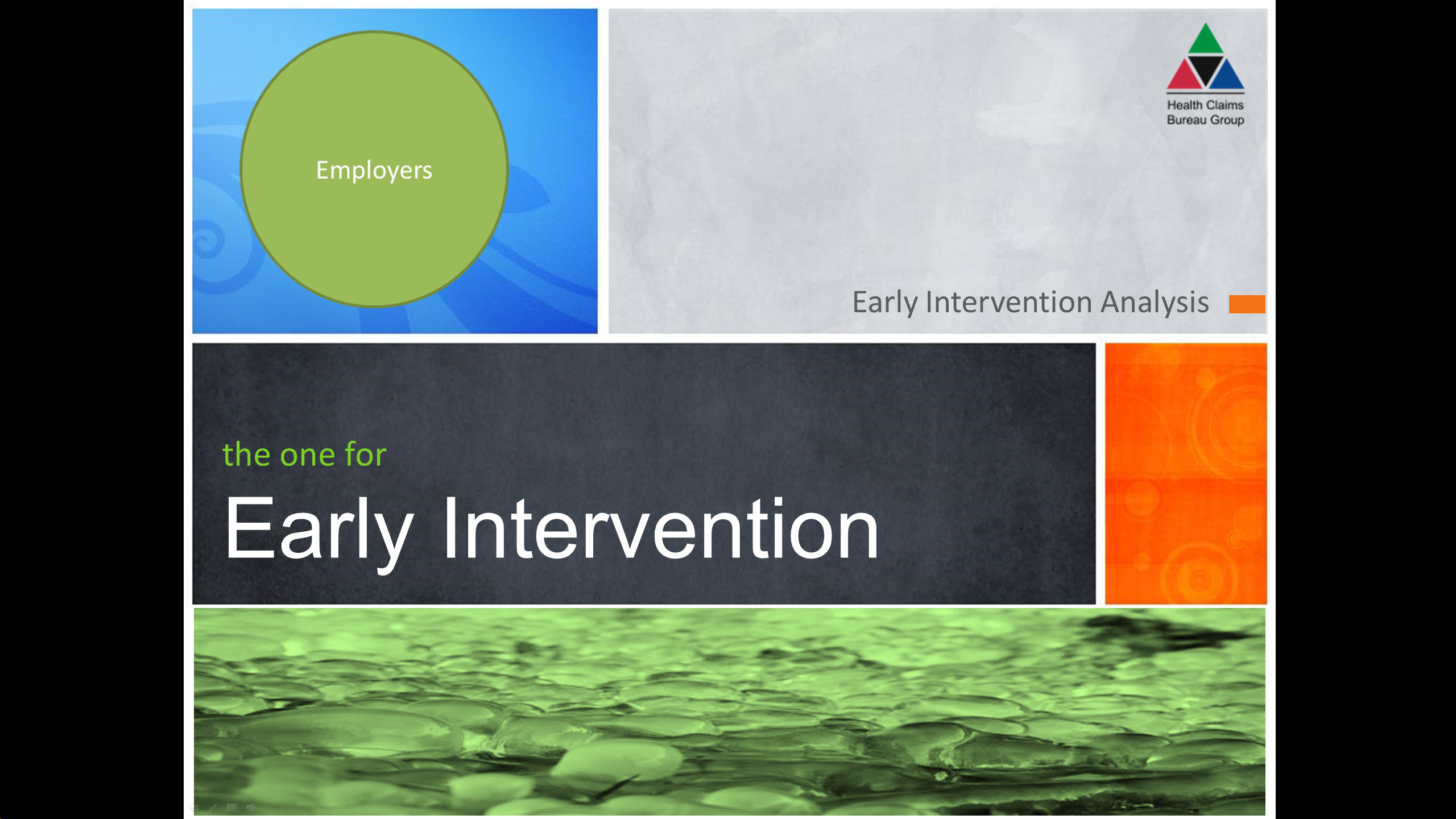Early Intervention – Does it matter?

It is often mentioned that Dame Carol Black’s Review of the health of Britain’s working population: Working for a healthier tomorrow (Department for Work and Pensions: 17 March 2008) was the first time that early intervention came onto the Government’s agenda. It may well be the first time that it grabbed the attention of the national media, but in reality it had been raised a number of times by a good friend and Director of Health Claims Bureau (HCB), Professor Sir Mansel Aylward CB DSc MD FFPM FFOM FFPH FRCP.
Professor Aylward advocated early intervention strongly from 2000 and in 2004 at a seminal conference at the Royal Society of Medicine (RSM) that was sponsored by an educational grant from the Department for Work and Pensions. The emphasis on early intervention featured in several of the presentations (including Professor Aylward’s and good number of the others) which were subsequently published (What About the Workers? Royal Society of Medicine Press, London:2004).
The importance of early intervention was further emphasised in Dame Carol Black’s review of the existing evidence. Despite the compelling accumulating proof which supported the benefits of early intervention (Ref-What About the Workers, above), Dame Carol’s Review (Reference (2008) and Waddell G, Aylward M (2010) ‘Models of Sickness and Disability’ RSM Press, London) the benefits of early intervention have yet to be fully exploited.
The importance of Early Intervention has been recognised by the national government. But there was (and still is) tardiness and complacency amongst some healthcare professionals, employers, public services and even some major insurance companies in adopting a concerted early intervention approach that gets to the root of the problem – and there still is.
HCB is publishing an analysis of some recent cases, showing that when used effectively, especially when allied to the biopsychosocial model (BSP) of case management (showing how sickness absence is affected by a combination of the health condition, social circumstances, personal and work/organisational factors), early intervention can save employers time and provide a direct beneficial financial outcome for the employer, and a very positive experience for the employee.
It has been estimated that applying early intervention correctly could reduce sickness absence by as much as 40% and yet, until recently, employers, employees and even GPs were usually in the dark as to what support was available and how best to implement it.
Find out how HCB utilises its experience and detailed knowledge of the BSP model and how it could assist your organisation with sickness absence, or the management of long or short term disability insurance claims.
Health Claims Bureau
Harwell Innovation Centre, Building 173, Curie Avenue, Harwell, Didcot, Oxfordshire OX11 0QG
+44 1235 519924



